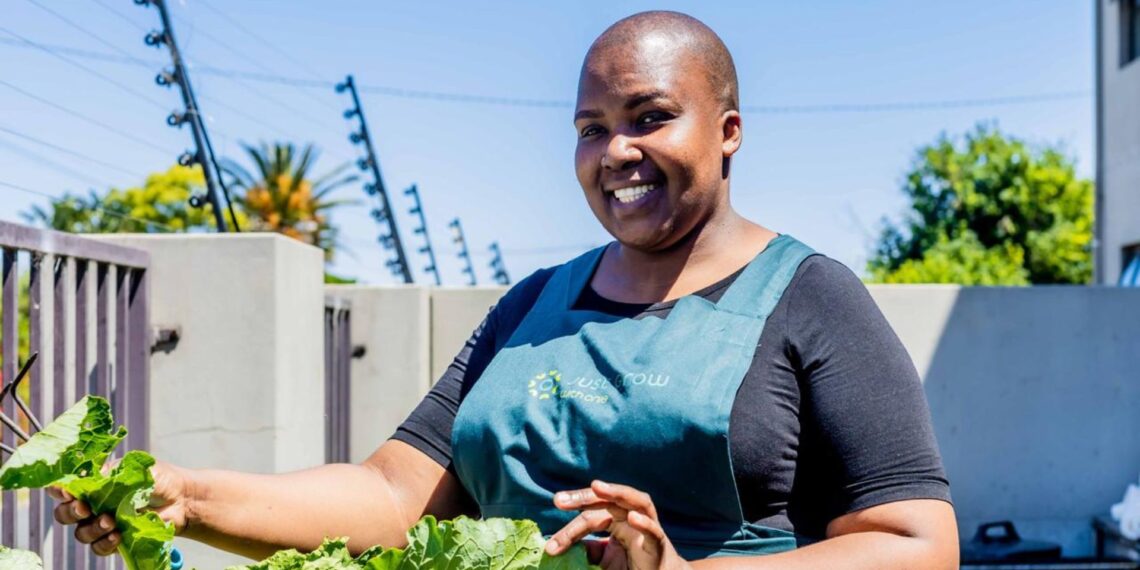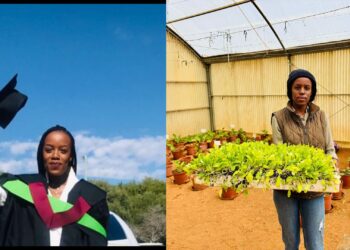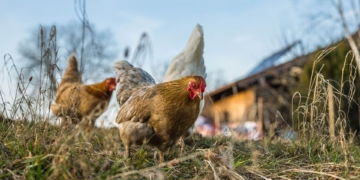Childhood for Oneziwe Jackson was a playground of curiosity – flipping through food catalogues, copying recipes from her books, and mimicking everything done at home. These early moments planted the seeds for her future in food technology.
She had once imagined herself in an apron, surrounded by spices and ingredients, wearing a crisp white chef’s jacket and cap. That vision didn’t unfold exactly as she imagined, but when food technology came into her life, she embraced it fully.
Today, she goes beyond preparing food; she explores, learns, and teaches the science that makes every dish possible.
Homegrown passion for food
Jackson recalls growing up in eMcwangele village in Tsolo, which still lacks electricity, running water, proper roads, or a cell phone network. Life revolved around homesteading and a village community living in harmony without formal jobs.
She was raised by her grandparents and her mother, a nurse working in Mount Frere, moving between rental homes. “My mother was the breadwinner, always on duty, always providing.”
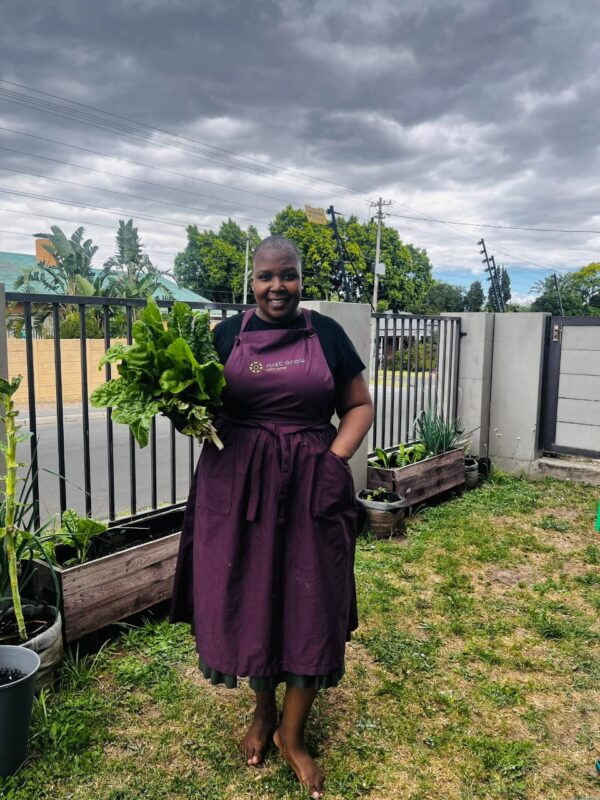
Parental guidance was never limited to one person. She remembers following her aunt, fetching clay to plaster walls or polishing floors. Sometimes, they would harvest plants like amaranth for lunch.
She loved being at home, observing the elders, especially cooking. Her curiosity grew from watching how food was grown and prepared.
Most of her primary school years were spent in Mount Frere before moving to Harding in KwaZulu-Natal for boarding school. She matriculated in 2005, filled with dreams and determination for tertiary studies.
When choosing a course, she picked anything that had the word “food” in it. “Growing up, I was always drawn to the pot. Whether standing next to my mother as she cooked on our small two-burner stove or watching my aunt and grandmother stir steaming pots over an open fire, the kitchen was my classroom. I was learning with my eyes and taste buds.”
Related stories
- Food labels: Why fewer ingredients aren’t always better
- Taste tradition: Chefs lead revival of climate-smart indigenous foods
- Indigenous crops: The climate-smart superfoods we need
Her mother recognised her passion early and often told her she belonged in a career related to food. In 2006, Jackson left home to enrol for a diploma in food technology at Cape Technikon, now Cape Peninsula University of Technology.
Failing and learning
The transition was tough. “I failed my second semester dismally and was excluded from the course,” she recalls. Food technology, she thought, was about cooking and tasting, not the science she encountered. “I was devastated. That was the first time I had ever failed, and it broke me.”
In 2008, Jackson reapplied and was accepted again. “By then, I was ready. I was ripe,” she says with a smile. This time, she excelled, graduating in 2011 and completing her B.Tech while working.
After 14 years in the food industry, Jackson says the journey has given her more than technical skills. It deepened her passion for food security, processing, and quality.
“I was raised to believe that if you can grow, cook and preserve food, you will never go hungry. That lesson is my inheritance, and it is what I want to pass on.”
Even as a girl, while friends collected song lyrics, she collected recipes. Today, she’s a food technologist who bridges the gap between what’s on our plate and the science behind it.
Food with integrity
“Food technology is the bridge between what we eat and how it nourishes us,” Jackson explains. She adds that it combines science, innovation and everyday habits to ensure food is safe, nutritionally balanced, and sometimes functional or medicinal.
Her career began in the dairy industry, where she spent five years learning how science shapes food. She then moved to the herb and spice industry for eight years, exploring the power of flavour, science, and artistry.
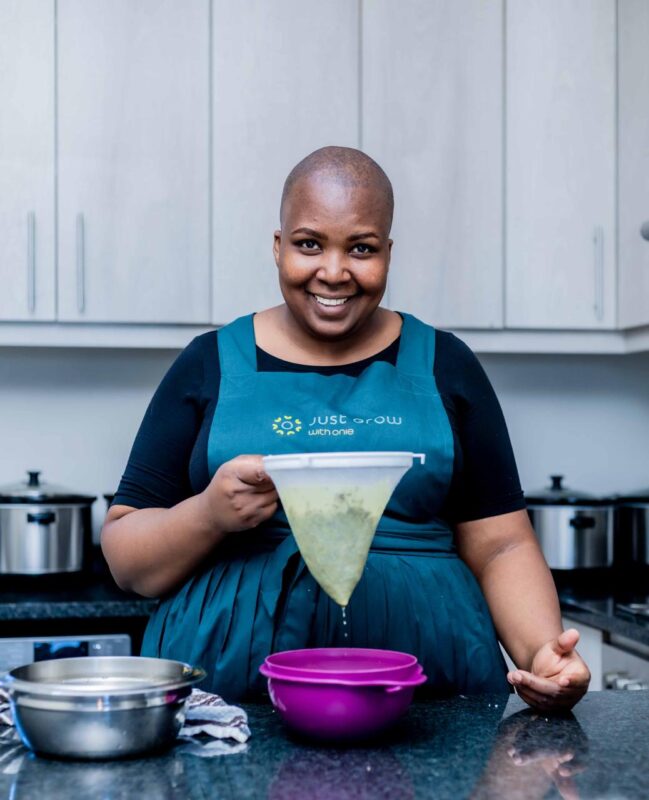
“Today, I’m in the food retail industry, and every step has been about more than just a job. It’s about purpose.”
Jackson says what matters most is not formulas or factory floors, but the people. “For me, the magic happens when I explain why, when I show them how these small things protect the people who will eat the food they make.
“For me, food technology isn’t just a qualification, it’s a way of life. It shapes how I think, how I cook, and how I see the world. It’s about bringing integrity, care, and excellence into every part of the food chain.”
She also applies this knowledge to her own business, Let’s Grow with Onie, built around tallow-based products.
Food that heals
Food technology ensures that every product we consume meets the highest safety and quality standards, controlling the process from raw materials to packaging to prevent contamination, nutrient loss, or spoilage.
Beyond safety, it helps preserve nutrients, develop healthier alternatives, and explore how natural ingredients can support healing and wellness.
She believes South Africans have become disconnected from nourishing foods. “We eat what’s convenient, marketed, and available,” she says, noting that indigenous foods like fermented sorghum, wild greens, fresh milk, and animal fats have been replaced by ultra-processed foods.
Lifestyle diseases such as diabetes, hypertension, and obesity are rising, even among the young.
Jackson calls for a shift in mindset, education, and access, emphasising food literacy. “People need to understand why certain foods heal and how to make better choices, even on a tight budget.”
Her advice is to grow your own food, reconnect with it, and simplify eating by returning to whole, local foods.
ALSO READ: Just grow with Onie: How a balcony business became a business



